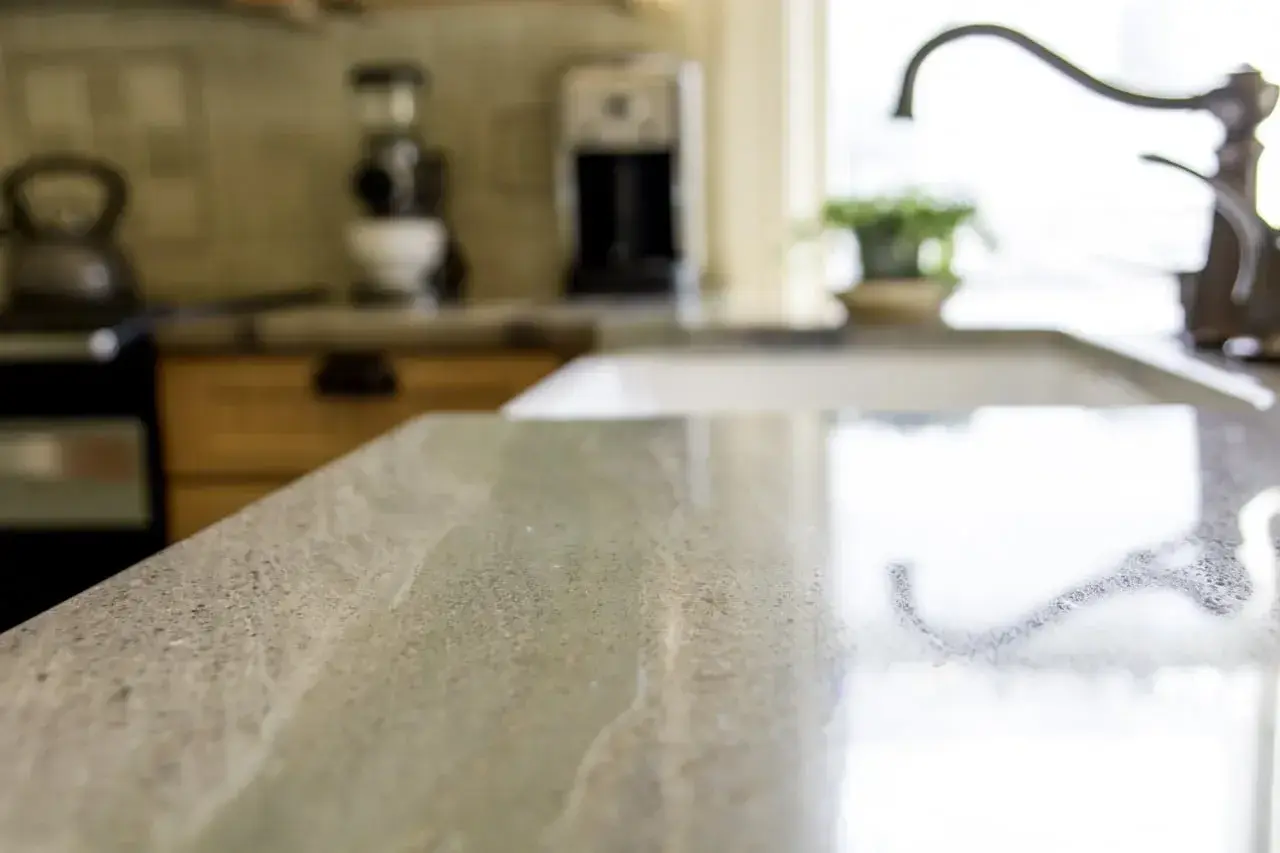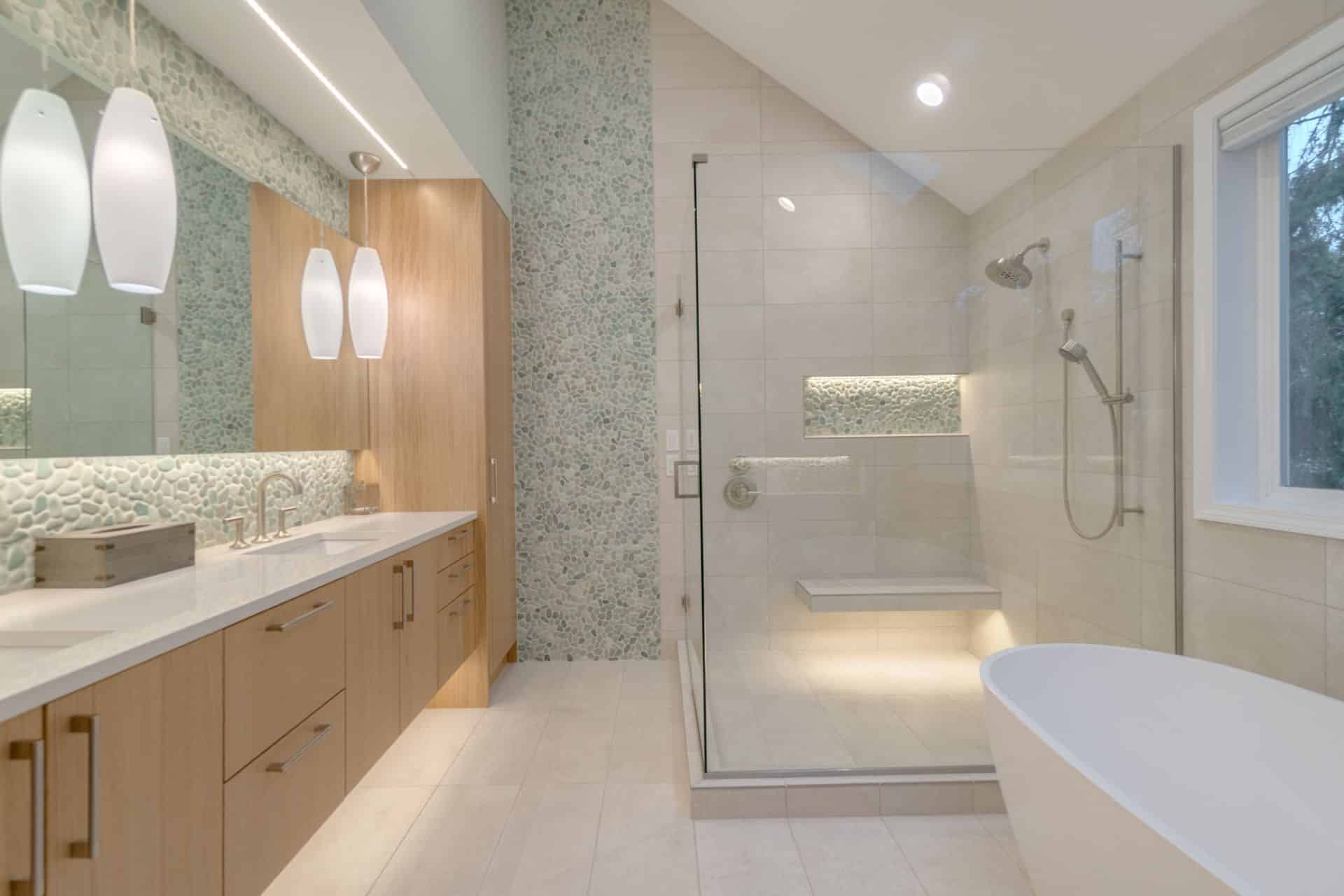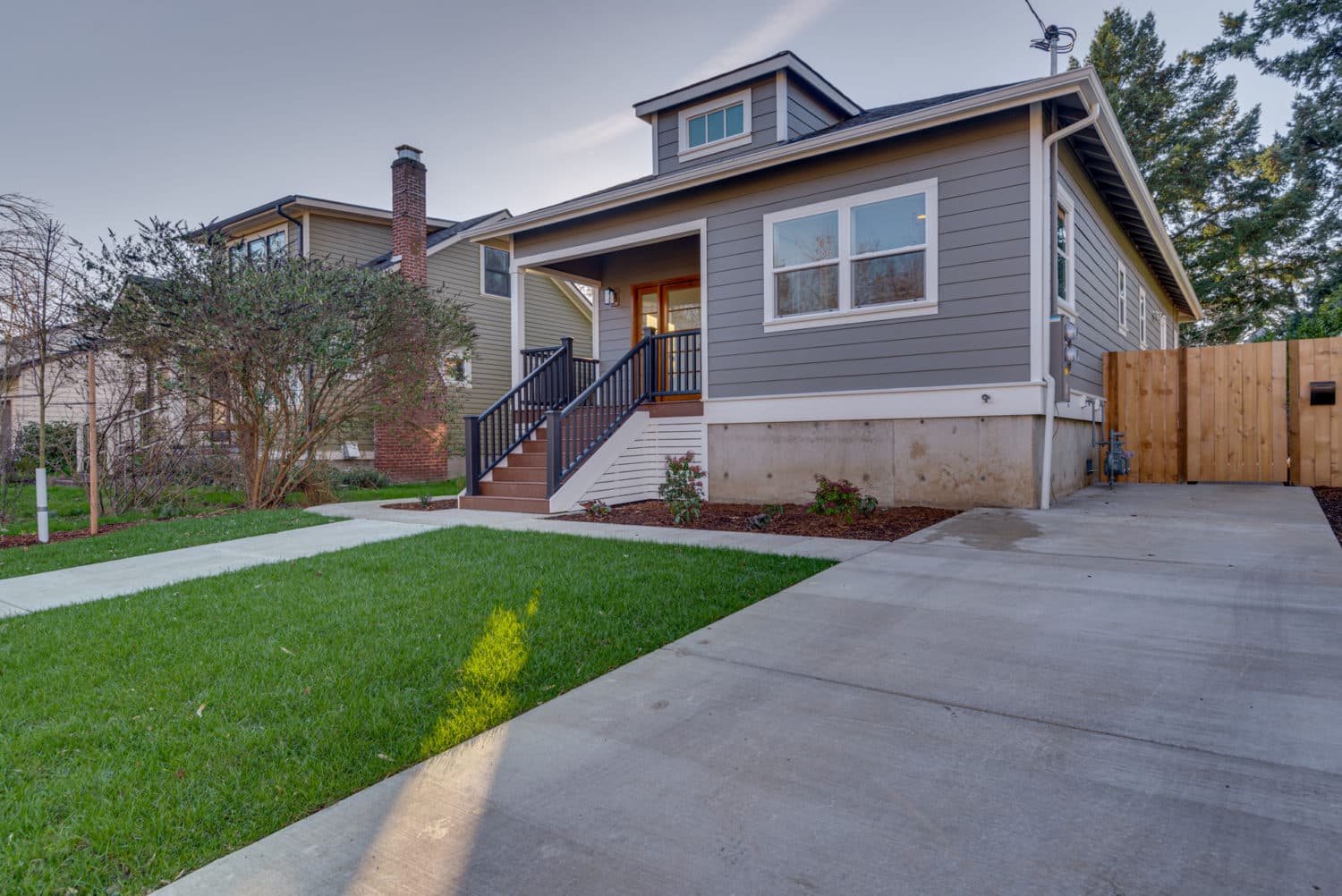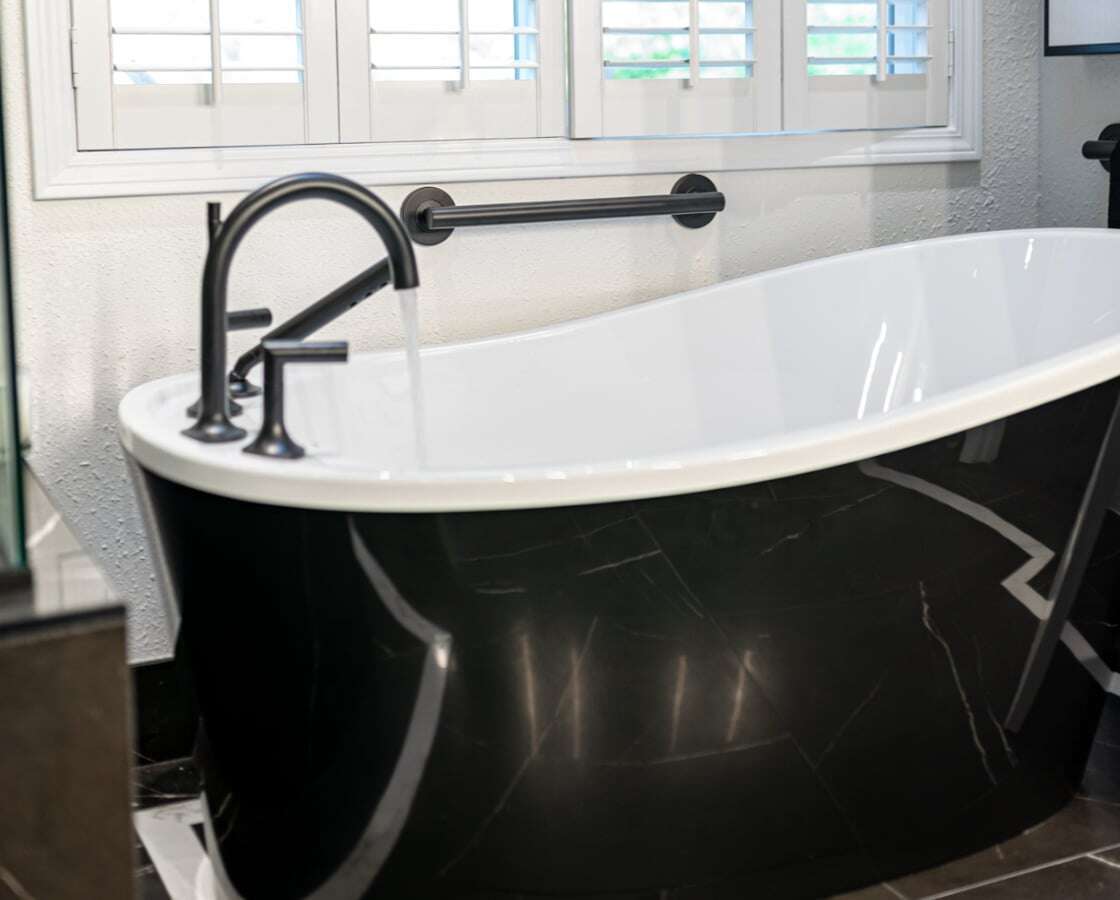Whether you’re talking about a kitchen, a bathroom, or a bar area, countertops can dramatically change the entire look of your space. You can either make them a focal point or have them blend into the background. With so many materials to choose from, narrowing your options can be a daunting task. We’re here to help! Here are some countertop pros and cons when planning your next remodel.

Pros and Cons: The 10 Most Popular Countertop Materials
It can seem like the possibilities are endless when it comes to countertops, so we’ve broken them down by the ten most common types, and we’ve rated each by color options, durability, maintenance, sink installation style (as some materials aren’t compatible with all types of sink installations), and cost.
- Laminate
- Thinscape
- Quartz
- Quartzite
- Natural marble
- Granite
- Solid surface
- Tile
- Stainless steel
- Dekton
Laminate

When it comes to laminate, color options are unlimited. From metal to wood and marble-look patterns, you have a lot to choose from. Some of the patterns are dated in their look but the technology for printing has improved over the years so they can have a truer stone-like appearance. Not common in kitchens these days, a typical application would be in a laundry room. It’s a great place to do a fun pattern while keeping the costs down.
Pros:
- Relatively inexpensive
- Lots of color options
- Easy to clean
- Stain-resistant
Cons:
- Seams and separation from the edge
- Not as durable or heat resistant as stone
- Prone to scratches
- No resale value
| Colors | Durability | Maintenance | Cost | Sink type |
| better/best | good | good | good | Over mount |
Thinscape
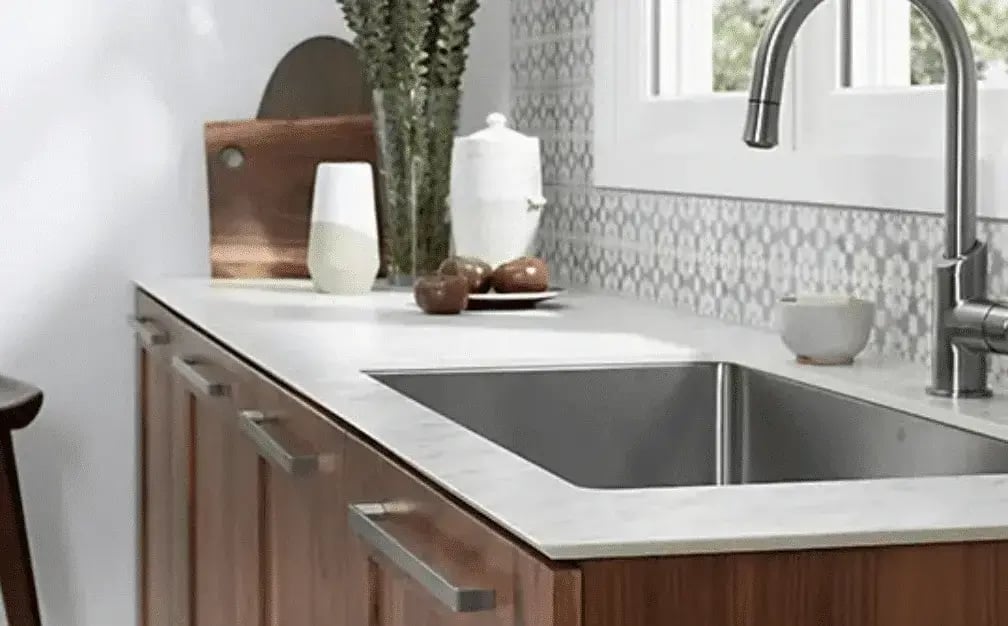
If you’re looking for something in between laminate and manufactured stone, Thinscape might be an option. Made from a 1/2 inch base, Thinscape mimics the look of marble, granite, and quartz surfaces but at a cheaper cost. It’s durable, easier to fabricate than other surfaces, and is scratch and moisture resistant. It comes in 12 styles. The material can also be integrated to create a seamless look; leaving you with a sleek and low maintenance surface.
Pros:
- Relatively inexpensive
- Durable
- Stain-resistant
- Sanitary (germ resistant)
Cons:
- Not as durable or heat resistant as stone
- Can scratch and scrape
- Not as heat resistant as many stone surfaces
- Limited to a dozen styles
| Colors | Durability | Maintenance | Cost | Sink type |
| better | better | better | better | Under and Over mount |
Quartz
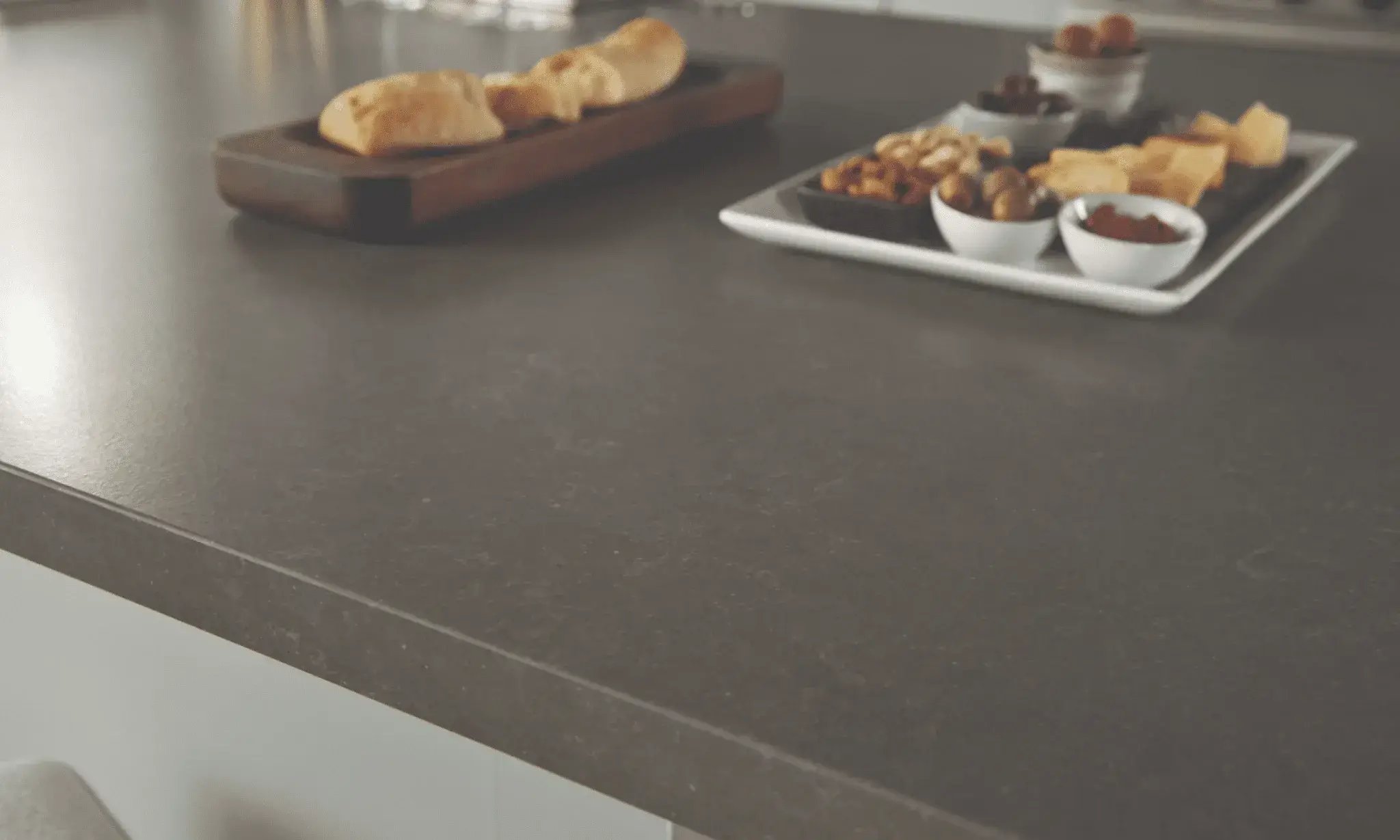
Quartz is by far the most popular countertop material we work with. It’s an engineered stone made by grinding natural quartz into dust and combining it with other synthetic materials and adhesives. The result is a hard and durable surface, but it can be damaged by high heat, due to the resin and polymers used to manufacture it. Quartz countertops come in a large array of colors and a variety of brands and finishes. The cost of the material depends on the variation in the color and pattern of the countertop you choose.
Pros:
- Durable
- Scratch, chip and stain-resistant
- Sleek, modern appearance
- Large choice of colors and patterns
- Non-porous
- Easy maintenance
Cons:
- Doesn’t have the look of a natural stone
- Can be pricey
- Susceptible to heat damage
| Colors | Durability | Maintenance | Cost | Sink type |
| better | better | best | better | Under and Over mount |
Quartzite
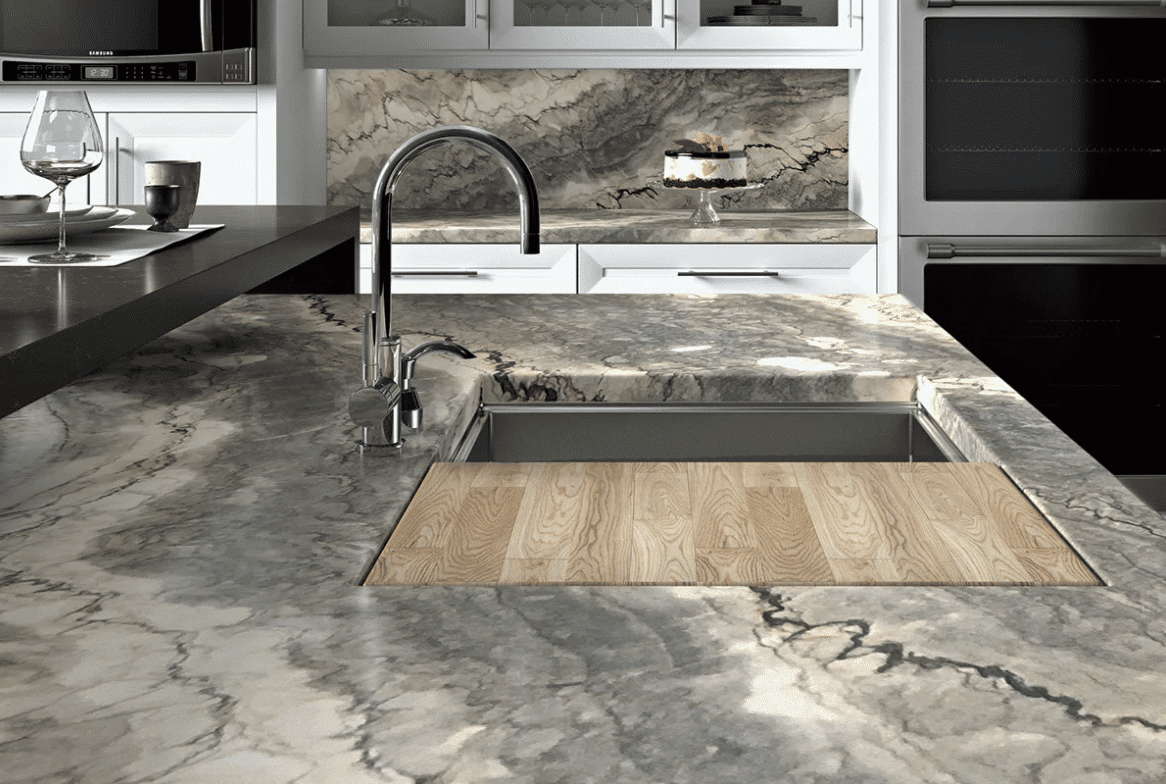
Where quartz is engineered, quartzite is a completely natural stone. It comes typically with gray and white veining, but its patterns are more varied than manufactured quartz. It’s also averse to scratches and resists heat better, as it doesn’t contain any of the resins and polymers that quartz does. However, it can be pricier than quartz and can be more susceptible to stains.
Pros:
- Durable, natural stone
- Varied patterns to choose from
- Scratch and heat-resistant
- Easy to clean
Cons:
- Not many color options available
- Can be prone to staining
- Requires regular maintenance
- Can be costly
| Colors | Durability | Maintenance | Cost | Sink type |
| good | better/best | better | best | Under and Over mount |
Natural marble

For sheer natural-stone wow-factor, marble is hard to beat. Its use throughout history to adorn ancient palaces and serve as the material of choice for many of the greatest sculptors gives it an enduring allure. That’s why it’s still a popular choice for many high-end home remodels. Its beauty does come with a cost. Not only can it be expensive, it also requires a fair amount of maintenance to resist stains and other damage. But, if you’re looking for a truly unique countertop choice and don’t mind spending a little extra, this may be the ideal option for you.
Pros:
- Stunning natural stone
- Available in several colors and patterns
- Can increase property value
- Can be long-lasting if maintained
Cons:
- Can be expensive
- Porous, so can stain relatively easily if not maintained regularly
- Can chip and crack
- Heavy; can’t install on your own
| Colors | Durability | Maintenance | Cost | Sink type |
| better | better | good/better | best | Under and Over mount |
Granite
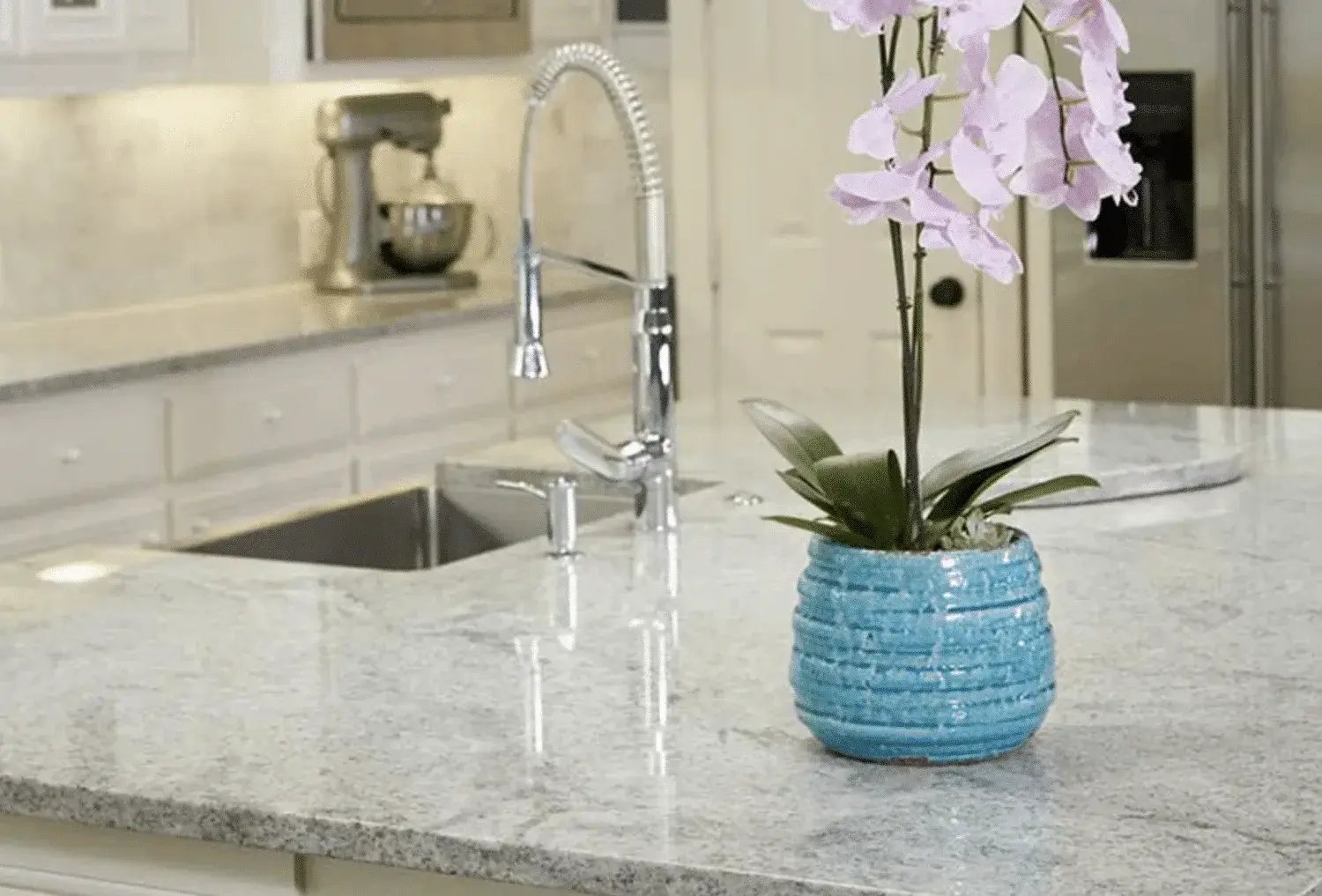
Granite is one of the most common countertop materials, and for good reason. It’s extremely durable, so you can place hot pans on it with little worry. It’s resistant to chipping. It’s a natural stone so each slab is unique. And it is extremely versatile — it can be used as a kitchen or bathroom countertop, backsplash, shower walls, and even fireplace surrounds, inside or outdoors.
Pros:
- Very durable
- Heat, scratch, and stain-resistant
- Natural stone
- Easy to maintain
- Several style options
Cons:
- Somewhat pricey
- Requires intermittent sealing
- Likely to come with seams on larger countertop areas
| Colors | Durability | Maintenance | Cost | Sink type |
| better | best | best | best | Under and Over mount |
Solid surface

Intended to mimic the appearance of granite, marble, or other natural stones, solid surface countertops are made up of non-porous, low-maintenance materials. The non-porous aspect is aimed at making it more stain-resistant, while still being fairly durable. Its density also helps prevent the build up of harmful bacteria — so it can be a more sanitary option. While it resembles stone much more than laminate for example, solid surface countertops lack natural stone depth.
Pros:
- Almost totally non-porous
- Easy to repair (can sand down scratches)
- Affordable
- Lots of colors and patterns
Cons:
- Easily susceptible to heat damage
- Can scratch, stain, and dent easily
- Not as durable as natural stone or engineered stone
| Colors | Durability | Maintenance | Cost | Sink type |
| best | good | better | good | Under and Over mount |
